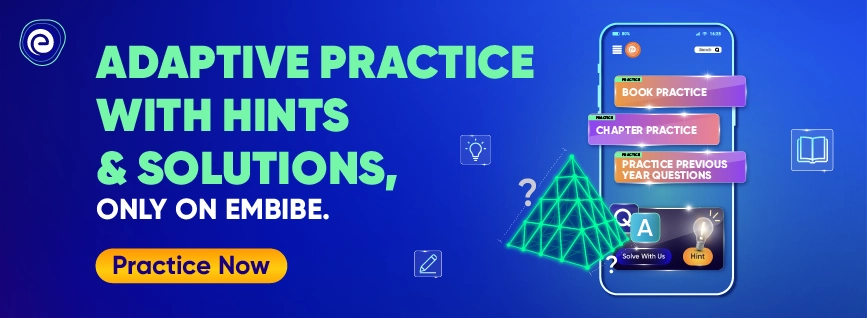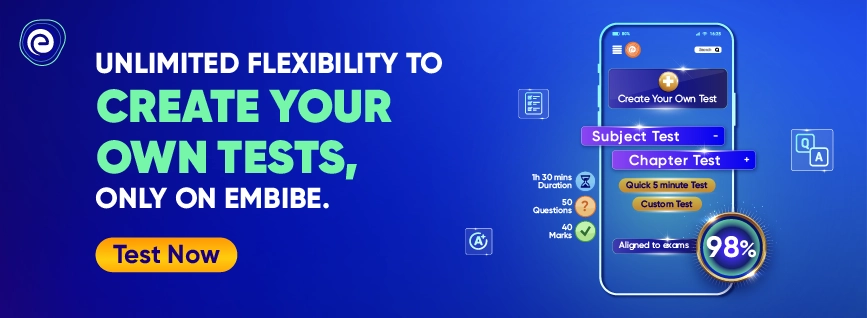- Written by Rahul Khatake
- Last Modified on 19-11-2024
Punjab Board Class 7 Exam 2025
Punjab School Education Board (PSEB) is one of the most popular state boards that conduct exams for Classes 1 to 12 in Punjab, India. Headquartered in SAS Nagar, Mohali, PSEB was established in 1969 after legislative approval. It primarily targets the development and promotion of Secondary Education in Punjab and governs every aspect of school education in the state.
Class 7 is a crucial stage in a student’s learning journey, as the concepts learnt here set the right base for future learning. Hence, every student needs to grasp the most out of the subjects taught to them in Class 7. The Punjab School Education Board understands the importance of this grade and has therefore designed a curriculum and syllabus that ensure students get all the knowledge they need to continue their future studies. Read on to know more about Punjab School Education Board Class 7.
Punjab Board Class 7 Exam Summary 2025
Punjab State Board Class 7 Exam is to be conducted by the different schools administered by Punjab School Examination Board. The Punjab Class 7 examinations are held at the school level, where term-wise exams are scheduled, followed by an annual examination. PSEB Class 7 is important for learning new concepts discussed more at length in higher classes. To get an idea about the topics covered, students can refer to the PSEB Class 7 Syllabus of the major subjects.
Science, Social Sciences, Languages (Punjabi, Hindi and English) and Mathematics are the main subjects in the secondary Punjab education system. The four fundamental aspects gained through learning are:
- Knowledge
- Skill
- Balance
- Insight
Punjab Board Official Website
https://www.pseb.ac.in/en
Punjab Board Class 7 Exam Pattern 2025
The Punjab Board Class 7 exam paper pattern is decided by the schools/educational institutions. Students can ask their teachers for previous years’ question papers to know the PSEB 7th exam pattern. Many schools also provide the exam pattern when they give syllabus.
Punjab Board Class 7 Syllabus 2025
The PSEB syllabus for Class 7 contains all the topics students need to cover to form a solid base for their future learning. With the help of the PSEB syllabus, students of Class 7 can prepare themselves for the upcoming examinations. The subject-wise PSEB Class 7 syllabus provided in this article is obtained from the official website.
Punjab Board Class 7 Science Syllabus
Science is a very interesting subject. Students will learn some concepts for the first time. It is also a very scoring subject. The chapters lay the foundation in Biology, Chemistry, and P. It aims to determine how much environmental knowledge is integrated and understood by the student, and also helps them face problems in real-time situations.
| Chapter No. |
Chapter Name |
| 1 |
Nutrition in Plants |
| 2 |
Nutrition in Animals |
| 3 |
Fibres to Fabric |
| 4 |
Heat |
| 5 |
Acids, Bases and Salts |
| 6 |
Physical and Chemical Changes |
| 7 |
Weather, Climate and Adaptations of Animals to Climate |
| 8 |
Winds, Storms and Cyclones |
| 9 |
Soil |
| 10 |
Respiration in Organism |
| 11 |
Transportation in Animals and Plants |
| 12 |
Reproduction in Plants |
| 13 |
Motion and Time |
| 14 |
Electric Current and its Effects |
| 15 |
Light |
| 16 |
Water: A Precious Resource |
| 17 |
Forests: Our Lifeline |
| 18 |
Story Of Waste Water |
Punjab Board Class 7 Mathematics Syllabus
Maths is a crucial subject but also a scoring one. A clear understanding of the concepts is required for scoring well in Mathematics. It is absolutely important for a student to grasp a mathematical concept correctly and understand the question completely in order to answer it right. The Punjab Board has created the Class 7 Maths syllabus to ensure that students cover all the relevant topics that would help them absorb the mathematical concepts that they learn in the future.
Through the different chapters covered in the Punjab Board Class 7 Maths syllabus, students will be introduced to many new and exciting topics like integration, data handling, and more. Following are all the chapters covered in the Punjab Board Class 7 Maths syllabus:
| Chapter No. |
Chapter Name |
| 1 |
Integers |
| 2 |
Fractions and Decimals |
| 3 |
Data Handling |
| 4 |
Simple Equations |
| 5 |
Lines and Angles |
| 6 |
The Triangle and Its Properties |
| 7 |
Congruence of Triangles |
| 8 |
Comparing Quantities |
| 9 |
Rational Numbers |
| 10 |
Practical Geometry |
| 11 |
Perimeter and Area |
| 12 |
Algebraic Expression |
| 13 |
Exponents and Power |
| 14 |
Symmetry |
| 15 |
Visualising Solid Shape |
Punjab Board Class 7 Social Science Syllabus
The syllabus is as per the latest pattern of Punjab School Education Board. The Punjab Board Class 7 syllabus of Social Science covers topics like Environment, Ocean, Natural Vegetation and Wildlife, etc. It is divided into different units that the students must follow to prepare for exams. In the table below, students can check out the latest Punjab Board Class 7 Social Science syllabus:
| Chapter No. |
Chapter Name |
| Unit I – Geography – Our Environment |
| 1 |
Environment |
| 2 |
Internal and External face of the Earth |
| 3 |
The Changing Face of the Earth and Landforms |
| 4 |
Atmosphere and Temperature |
| 5 |
Atmospheric pressure and winds |
| 6 |
Ocean |
| 7 |
Natural Vegetation and Wild Life |
| 8 |
Human-Environment – Settlements, Means of Transport and Communication |
| 9 |
Inter-Relationship of Man and Environment |
| Unit-II – History – Our Pasts – II |
| 10 |
The Medieval India |
| 11 |
New Kings and Kingdoms (A.D. 700 – 1200) |
| 12 |
Political Developments in South India (A.O. 700 – 1200) |
| 13 |
The Delhi Sultanate |
| 14 |
The Creation of an Empire – The Mughal Empire |
| 15 |
Monumental Architecture |
| 16 |
Towns, Traders and Craftsman |
| 17 |
Social Changes – Mobile and settled Communities |
| 18 |
Religious Developments |
| 19 |
The Development of Regional Cultures |
| 20 |
India in the Eighteenth Century |
| Unit-III – Civics – Democracy and Equality |
| 21 |
Democracy and Equality |
| 22 |
Democracy – Representative Institutions |
| 23 |
State-Government |
| 24 |
Media and Democracy |
| 25 |
Gender – Inequality |
| 26 |
Role of Market/Bazaar |
Punjab Board Class 7 English Syllabus
The Punjab Board Class 7 English syllabus is divided into four sections. Each section covers different topics and aims at improving different English Language related skills and knowledge among students like reading, grammar, composition etc. Here, we have provided the detailed English syllabus for Class 7:
| Chapter No. |
Chapter Name |
| 1 |
Rent for Water |
| 2 |
Birbal’s Khichdi |
| 3 |
A Glass of Milk |
| 4 |
Mountaineers |
| 5 |
The Princess who never smiled |
| 6 |
A Treasure Hunt |
| 7 |
A Hole in the Fence |
| 8 |
Hachiko- The World’s Most Loyal Dog |
Also Check,
Punjab Board Class 7 Study Plan to Maximise Score 2025
To increase their score in Punjab Board Class 7, students need a well-structured study plan that covers all the topics in the curriculum. They should first give importance to difficult topics, use a variety of resources, and set achievable goals. Regular revision and practice can help them understand and boost their confidence to score good marks.
Punjab Board Class 7 Preparation Tips
Scoring well in Class 7 requires dedication and detailed exam preparation. Therefore, it is important that the students focus on each of them properly. By referring to these preparation tips, students will be able to score good marks in exam in no time. To help students with their preparation, we have provided some useful preparation tips for PSEB Class 7:
- Prepare a timetable, allot proper time to each and every chapter and dedicate extra time to topics/subjects that students might find difficult.
- Try to write and practice each and every topic in detail. When students write down something, it stays in their mind for a long time. The written notes that they will create while learning topics will help in revision as well.
- Practicing each topic is the key to success. To pass the Punjab Board Class 7 exam, one has to cover various subjects and multiple chapters in each subject.
- Small breaks between study sessions can do wonders for the concentration. Try not to exhaust the mind when studying or revising for the exam or before the exam. Take a walk outside, listen to some music, watch TV or do anything that can help refresh the mind.
- Concentration is of absolute importance, which also depends on the spot or place students choose for studying. A peaceful place to study, away from distractions and interruptions can help them concentrate better.
- Pick study hours according to personal preference, when students feel the most refreshed and energetic to study or the time of the day that suits them best. Choosing the study hours wisely can help retain more of what is learn at that time.
- The benefits of a healthy diet and sleep cycle are countless. The mind and body will work much better if students fuel them with the right amount of nutrients and rest. Hence, try to take a healthy diet and proper sleep during the exam period and when they revise. Surviving over junk food is not a good idea.
Detailed Study Plan for Punjab Board Class 7
A detailed study plan is one of the most prominent ways to prepare for the Punjab Board Class 7 exam. Students need to ensure that they cover the study plan for each subject. It will play an important role in helping the students score higher marks on the exam. In the sections below, students can find the detailed study plan for Punjab Board Class 7:
- Understanding the curriculum is essential for creating a study plan for PSEB Class 7. The student should check the subjects, topics, and learning outcomes for each subject to ensure they cover everything required.
- It is recommended that the student creates a weekly or monthly study schedule that outlines the topics they need to cover in each subject. The schedule should allocate enough time for each subject and leave some time for revision.
- Difficult topics should be prioritized in the student’s study plan. They should identify the topics that they find challenging and allocate more time for these topics.
- The student should use a variety of learning resources for understanding the topics. It is advisable to use different resources such as online videos, practice quizzes, and other study materials in addition to their textbook.
- Setting achievable goals is crucial to staying motivated and focused on studies. The student should set achievable goals for each study session, track their progress, and celebrate their achievements. They should also adjust their study plan as needed to ensure they stay on track and achieve their goals.
FAQs on Punjab Board Class 7 Exam 2025
Q: What is the full form of PSEB?
Ans: The full form of PSEB is Punjab School Education Board.
Q: How to score maximum marks in PSEB Class 7 exams?
Ans: The most efficient way of scoring good marks in PSEB Class 7 exams is get to familiarised with the latest exam pattern and syllabus. This way, students can have a clear idea about what topics they need to cover and what questions will be on the exam papers. After this, students can easily decide the number of hours they need to study and practice and plan their studies accordingly.
Q: Where can I download the syllabus for Punjab board Class 7?
Ans: The Punjab Board Class 7 syllabus is given in the article above. Students may scroll above to check the syllabus.
Q: Is it important to go through the previous years’ papers while preparing for PSEB Class 7 exams?
Ans: Yes, all students preparing for Punjab Board Class 7 exams must go through previous years’ papers. It helps the students identify the papers’ difficulty level and then cover the topics according to their frequency of occurrence and importance in recent year exams.
Q: What are the top preparation tips for Punjab board Class 7 exams?
Ans: Some of the top preparation tips for Punjab Board Class 7 students include understanding the syllabus and exam pattern, revising the topic students have covered, attempting mock tests, and making a timetable to dedicate sufficient hours to study every day.
List of Educational Institutions for Punjab Board Class 7
Punjab School Education Board (PSEB) affiliated schools provide quality education to Class 7 students in the state of Punjab, India. These schools follow a curriculum that covers various subjects such as mathematics, science, social studies, and languages. In the table below, we have provided a list of 100 schools/educational institutions for Punjab Board Class 7.
| S.No. |
Name of School |
Location |
School Type |
| 1 |
Government Senior Secondary School, Dhapai |
Amritsar |
Government School |
| 2 |
Government Senior Secondary School, Kot Khalsa |
Amritsar |
Government School |
| 3 |
Government Senior Secondary School, Butaa |
Amritsar |
Government School |
| 4 |
Government Senior Secondary School, Katra Sufaid |
Amritsar |
Government School |
| 5 |
Government Senior Secondary School, Sohian Kalan |
Amritsar |
Government School |
| 6 |
Government Secondary School, Mallu Nangal |
Amritsar |
Government School |
| 7 |
Government Senior Secondary School, Jhita Kalan |
Amritsar |
Government School |
| 8 |
Government Senior Secondary School, Sarangra |
Amritsar |
Government School |
| 9 |
Government High School, Bhilowal Pacca |
Amritsar |
Government School |
| 10 |
Shaheed Darshan Singh Government Senior Secondary School, Pheruman |
Amritsar |
Government School |
List of Future Exams After PSEB Class 7
After PSEB Class 7, students may have the opportunity to appear for various competitive exams that will help them advance their education and career prospects. Some of these exams may be national level tests while others may be specific to certain fields of study. These exams may assess the student's aptitude, knowledge, and skills in various subjects, such as science, mathematics, social studies, and languages. Below we have provided the list of future exams that the students can take after PSEB Class 7:
- NSO: National Science Olympiad is a national-level exam held for students from classes 1 to 12 by the SOF (Science Olympiad Foundation). The National Science Olympiads' rankings are allocated based on the marks scored by the candidates. Students should refer to Maths and Science syllabus, as prescribed by ICSE, CBSE, or various state boards.
- NSTSE: It stands for the National Level Science Talent Search Exam. It inspires students to reason critically while solving problems. NSTSE exam papers are scientifically developed to test concepts underlying the curriculum. Students belonging to classes 2 to 12 from recognised schools are eligible. The study matter is aligned with the curriculum prescribed by the CBSE board.
- MTSE: It is a competitive exam for the Maths Talent Search Exam. The Indian Institute for Studies in Maths (IISMA) conducts MTSE from classes 3 to 9. It focuses on mathematical reasoning, mental ability, accuracy, and speed. The subject matter is aligned with the curriculum prescribed by CBSE and ICSE boards. Additionally, MTSE awards scholarships to the top rankers.
- IMO: International Mathematics Olympiad is a competitive exam to recognise and encourage mathematical creativity among children. The subject matter is aligned with the CBSE and ICSE board curricula. IMO awards scholarships to the top rank holders.
- NSEJS: The Indian Association of Physics Teachers (IAPT) and Homi Bhabha Centre for Science Examination (HBCSE) collectively conduct the National Standard Exam in Junior Science. The eligibility criteria for students is that they should belong to India and be in Classes 1 to 10.
- ISO: The International Science Olympiad (ISO) is an annual exam. It is held at the national and international levels. Society governs IOS for Science Education. Indian students in classes 1 to 12 belonging to accredited schools are eligible to take the exam.
- IIO: The Computer Literacy Foundation conducts the IIO (International Information Olympiad). Classes 1 to 12 students from recognised schools is eligible for it.
- NIMO: The National Interactive Maths Olympiad (NIMO) is conducted by EduHeal Foundation. NIMO intends to make Maths more fun. It plans to introduce interactive activities like workshops, olympiads, and seminars to students.
- ASSET: Assessment of Scholastic Skills through Educational Testing (ASSET) is a scientifically curated, skill-based assessment test. It measures how well school students master important concepts. ASSET also offers information on the individual students' and whole classes' strengths and weaknesses.
- GeoGenius: It aims at spreading the understanding of Geography among school children. It teaches them about the planet and teaches a deep love and respect towards the environment, which plays a significant role in their progress.















































